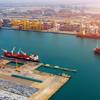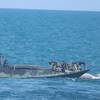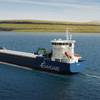Shipping legislators meet on Monday to discuss a timetable for eliminating single-hulled tankers, a pollution threat to the world's coastlines.
But major maritime nation Brazil looks set to oppose the ban, proposed by the European Union, which eventually would see the world's fleet limited to double-hulled tankers.
Shipping sources said many more countries were planning to back Brazil's position at the meeting in London of the International Maritime Organization (IMO).
IMO, during a week-long session, will discuss possible deadlines of either 2015 or 2017 by which time all the world's single-hulled tanker fleet would have to sail to the scrapping beaches. The meeting is under the Marine Environmental Protection Committee, which is comprised of 113 nations from IMO's 158 members' states.
One of Brazil's representatives to IMO said his country was among several that would oppose the move. "We're going to vote against the change," a shipping official said.
"We're not saying there is no need for change, but we first need a study to see if it will solve the problem (of tanker accidents) ... and we really don't know the impact."
"Does this mean we will have a shortage of tankers and therefore an impact on oil costs?" he said.
The United States, stung by the Exxon Valdez Alaskan oil spill in 1989, already has set a deadline banning single-hulled tankers from U.S. waters from 2015.
Another shipping official said he thought IMO's decision might also be opposed by the flags of convenience, which represent shipowners interests.
Featured videos

Inmarsat Enhances Service to Drive Digitalization

Tracking Foreign Vessels Working in the U.S. Jones Act Market

Inside the Electrified Truckable Tug
Subscribe for
Maritime Reporter E-News
Maritime Reporter E-News is the maritime industry's largest circulation and most authoritative ENews Service, delivered to your Email five times per week









